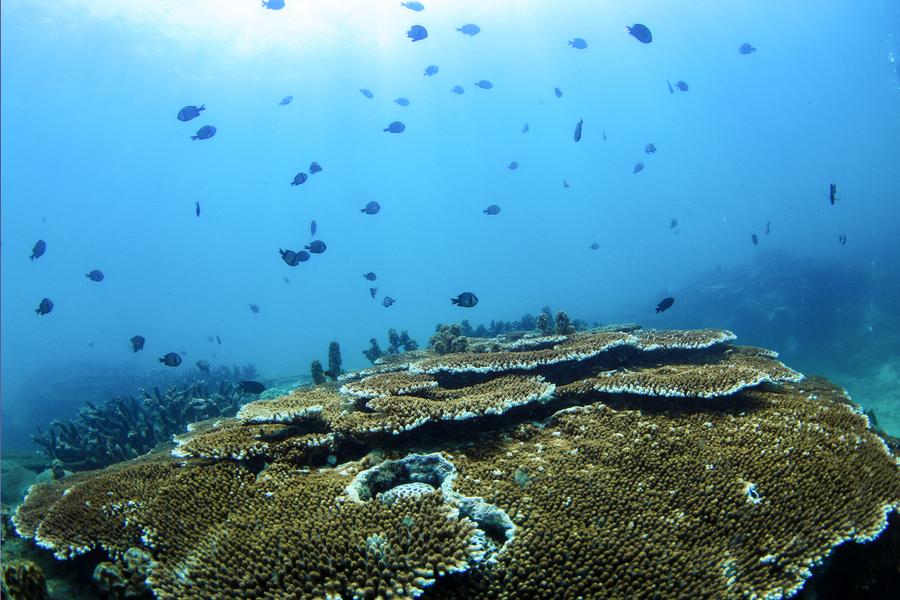Chinese scientists develop degradable coating to tackle marine biofouling challenges


HANGZHOU -- Chinese researchers have developed an innovative degradable silicone-hydrogel coating that shows exceptional anti-biofouling performance in marine applications.
The study, conducted by researchers from East China's Ningbo Institute of Materials Technology and Engineering under the Chinese Academy of Sciences, has been published in the journal Small. It presents a sustainable solution for combating microbial fouling, a major challenge in terms of marine engineering and underwater infrastructure.
Marine equipment and underwater structures often face serious biofouling problems caused by microorganisms, which can reduce performance, increase maintenance costs and create safety risks. Current solutions either use highly toxic biocides that harm marine ecosystems or eco-friendly alternatives that have limited effectiveness and durability.
To solve this problem, the research team created a unique coating by combining a simple sol-gel method with Schiff base chemistry. This approach allowed them to mix different types of monomers -- some that resist fouling, others that kill microbes, and some that make the coating flexible and able to break down over time.
The resulting coating works in four ways to prevent biofouling: It makes surfaces amphiphilic, so organisms can't stick, resists microbial attachment, kills attached bacteria and slowly renews itself as it degrades. Tests showed that the material is both flexible and long-lasting, with a hardness measurement of 0.135.
In laboratory experiments, the coating demonstrated outstanding performance -- killing 98.8 percent of bacteria and preventing 99.8 percent of microbial attachment.
Yan Minglong, the study's lead author, explained that this new coating lasts longer than current options, with an estimated 5.5-year lifespan when applied at a thickness of 200 micrometers.
According to co-corresponding author Zhao Wenjie, this innovation could significantly improve marine equipment, such as ships and underwater structures, while being more environmentally friendly than traditional antifouling methods. The technology may also be useful in medical devices that need to resist bacterial growth.
- China's defense ministry calls for united efforts to contain Japan's militarism revival
- Qinghai-Xizang Railway sets passenger record during 14th FYP period
- China-UAE joint air force training enhances practical cooperation
- Japan's offensive space policy is extremely dangerous: spokesman
- New beetle discovered in Potala Palace structures
- Investigators dismantle 200 professional criminal gangs, uncovering $4b illegal funds





































